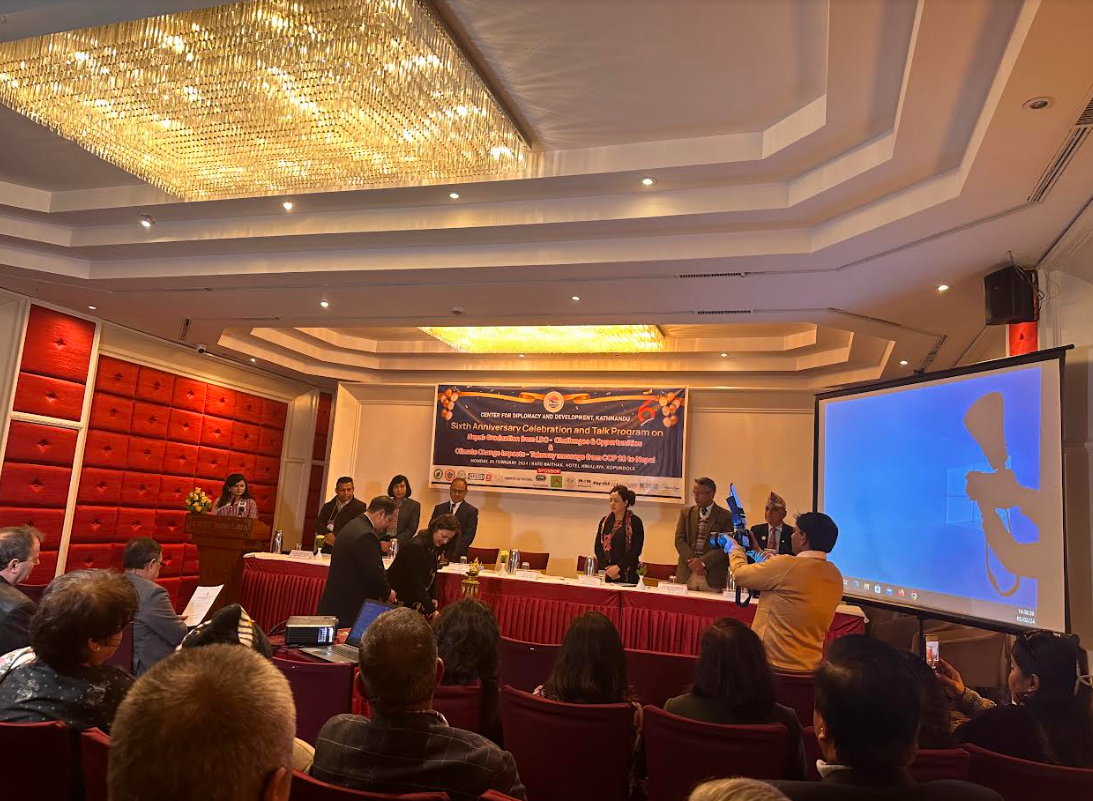In a talk program organized by the Center for Diplomacy and Development in Kathmandu on Nepal’s graduation from LDC, a prominent question that arose was whether Nepal is ready to graduate from LDC status giving away the benefits that LDC countries enjoy.
Nepal has been tagged as an LDC for more than 50 years since 1971. Presently there are 45 countries marked as LDC out of which 7 countries graduated from LDC by December 2023 which are, Botswana, 2nd Cabo Verde, Maldives, Samoa, Equatorial Guinea, Vanuatu, and Bhutan.
The United Nations Committee for Development Policy recommends Nepal’s LDC graduation in 2021 and Nepal is given three years to prepare for this graduation. The three criteria for LDC graduation set by the UN are an increase in Per Capita Income, the Human Assets Index, and an Environmental Vulnerability Index. Nepal has met two criteria except for per capita income.
By LDC graduation, Nepal expects increased FDI and trade diversification along with the very obvious benefit of an increase in National Dignity. But the loss of duty-free, quota-free market access provided to LDCs will be lost forever. Nepal may benefit from trade as per the Generalized System of Preferences for an additional short period. Still, it shall come with stringent conditions and additional Rules of Origin for preferential tariff treatment. Medicinal and aromatic plants, ginger, tea, textile, leather, pashmina, footwear, and other export goods may face high tariff walls. In the South Asian Free Trade Area, the differential treatment given to Nepal may be lost.
Nepal’s transit to developing countries may be possible by revamping the investment regime to attract FDI for capital and technology transfer. Promoting innovation to lessen production costs and reducing transit costs of raw materials for manufactured goods will help Nepal gear up industries on its land. Not to forget development of trade and industrial infrastructure is equally important. Intensified trade negotiations on all fronts and policy harmonization of trade may reduce its trade deficit with other countries.
Seeing the mountainous terrain of the Himalayan nation, Nepal may focus more on service sectors like ICTs, Tourism, Hydroelectric power generation, and consultancy businesses. Even after LDC graduation for up to 5 years, Nepal has the privilege of utilizing the UN Technology Bank to its benefit. When Nepal wisely uses the Generalised Scheme of Preference for Trade in the EU, Turkey, and the UK along with the suggested way forward, there are fair chances of a smooth transition to a Developing Nation.
Sweta Singh (Kathmandu)














